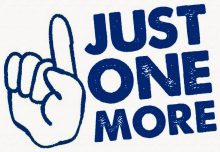 When I speak to some clients our conversation moves from their work lives and forward to their retirements now. Everyone has a different take on the progression from seeking the keys to success to now a concern for where they have placed or misplaced their car keys. Raise your hand if you’ve ever misplaced your car keys.
When I speak to some clients our conversation moves from their work lives and forward to their retirements now. Everyone has a different take on the progression from seeking the keys to success to now a concern for where they have placed or misplaced their car keys. Raise your hand if you’ve ever misplaced your car keys.
And this can happen anytime from freshman year in college to post-retirement when you’re preparing to meet friends for dinner downtown. Yet, that post-retirement lapse in remembering troubles us because it suggests that somehow something is wrong with our brains. A professor at UC Davis, Charan Ranganath, would correct that line of thought. Forgetting where we have put the keys or the name of that person this morning whom you met while walking your dog can be fixed. Memory is not about some gigantic file storage system. Memory is what we use as a basis for making informed decisions in the present and future. Buying a new car or a kitchen appliance is facilitated by the memories we have or a past purchase…maybe not even of cars or blenders. Our memories help us to make better decisions over time. So memory is about processing new experiences against a context of related events we remember.
Here are five tips to hone the skills for processing rather than feeling unsettled by what eludes us from our recollections themselves:
- So, to reiterate, memory is not about archival access to specific events, names or places. It’s to help us interact with others, be creative, be logical and even predictable in our daily patterns.
- What we remember is not a lock-in for all who had that experience in the past. We’ve seen on the detective shows that five witnesses to a crime are likely to have five different stories based on their belief systems or biases. Better yet, ask the two kids you may be raising who broke the cookie jar in the kitchen.
- Error-driven learning describes how we optimally learn in school versus remember by rote how to conjugate a verb in a new language. It helps explain why “immersion” in a country is a much better way to learn a language than memorizing what is in a textbook.
- The pre-frontal cortex of our brain doesn’t just call up a past experience. It filters out what our brain tells us is not useful in the present context. And it helps us set aside what is not useful to solving today’s problems based on yesterday’s experiences.
- Our memories will serve us much better if we diversify our life experiences along the way. My partner frames it by one of his science courses in college – He talks about how differently the biology majors talked about a phenomenon versus the physics or chemistry majors…same phenomenon from different memories and languages. One size did not fit all.
So, when you’re stressing about where you may have put your keys, think about what you were going to do after you got home and parked the car. Think about why you took the car out for the errand in the first place. Think about the more important thing of that particular day. Context may be what you’re looking for, not keys!
Charlotte Bishop is an Aging Life Care Advisor, Retirement Lifestyle Coach and founder of Creative Care Management, LLC, certified professionals who are geriatric advocates, resources, counselors and friends to older adults and their families in metropolitan Chicago. She also is the co-author of How Do I Know You? A Caregiver’s Lifesaver for Dealing with Dementia.






